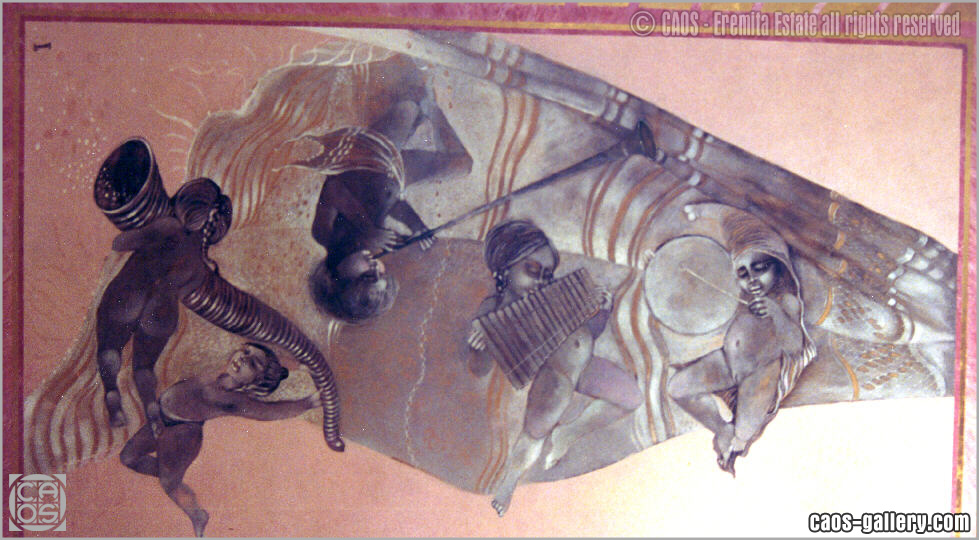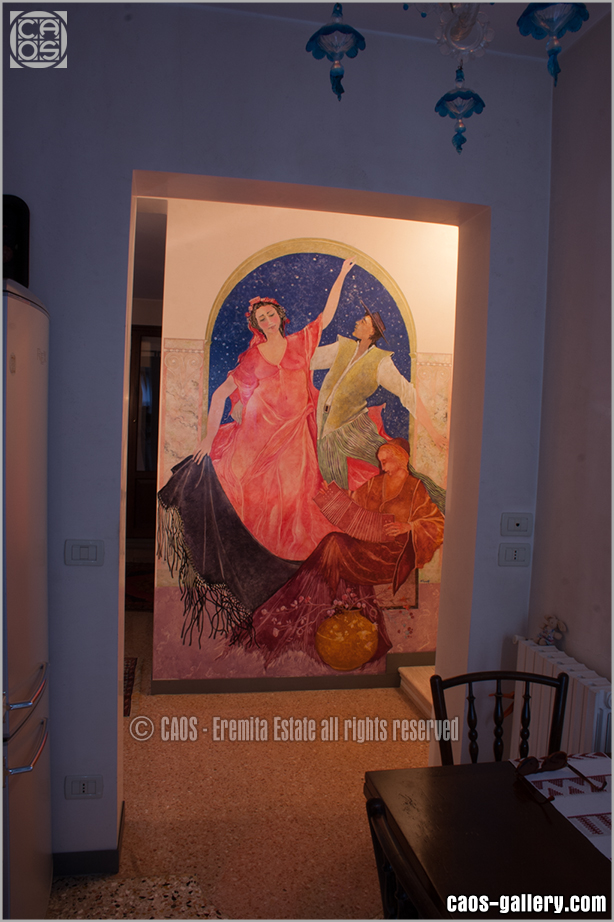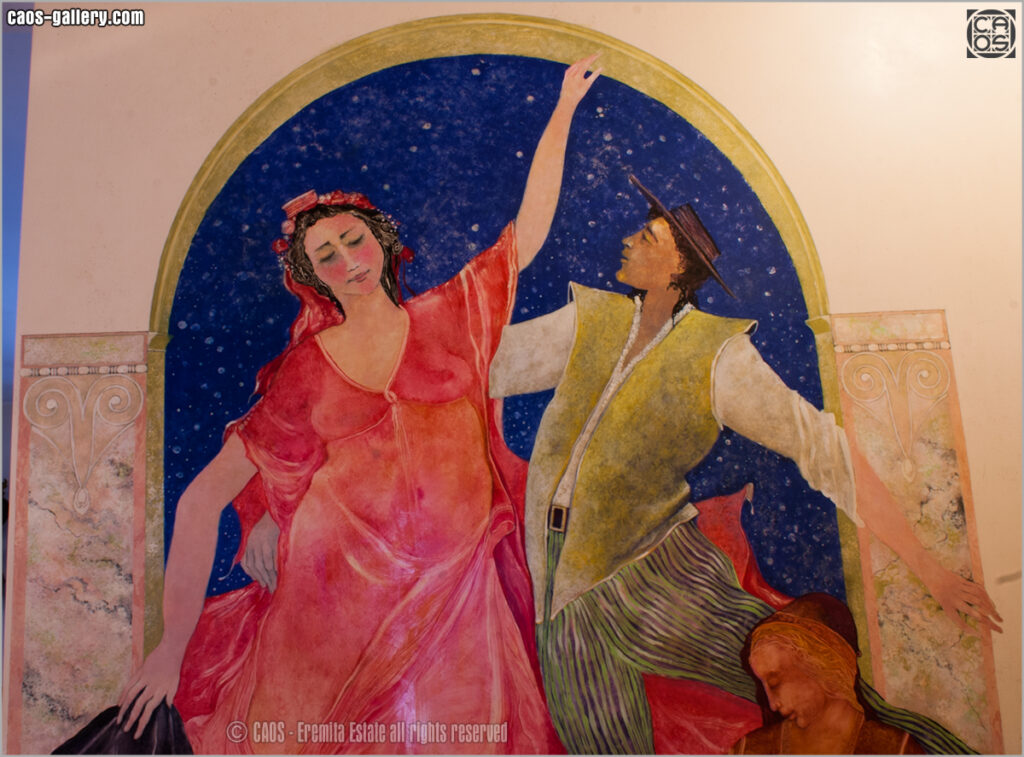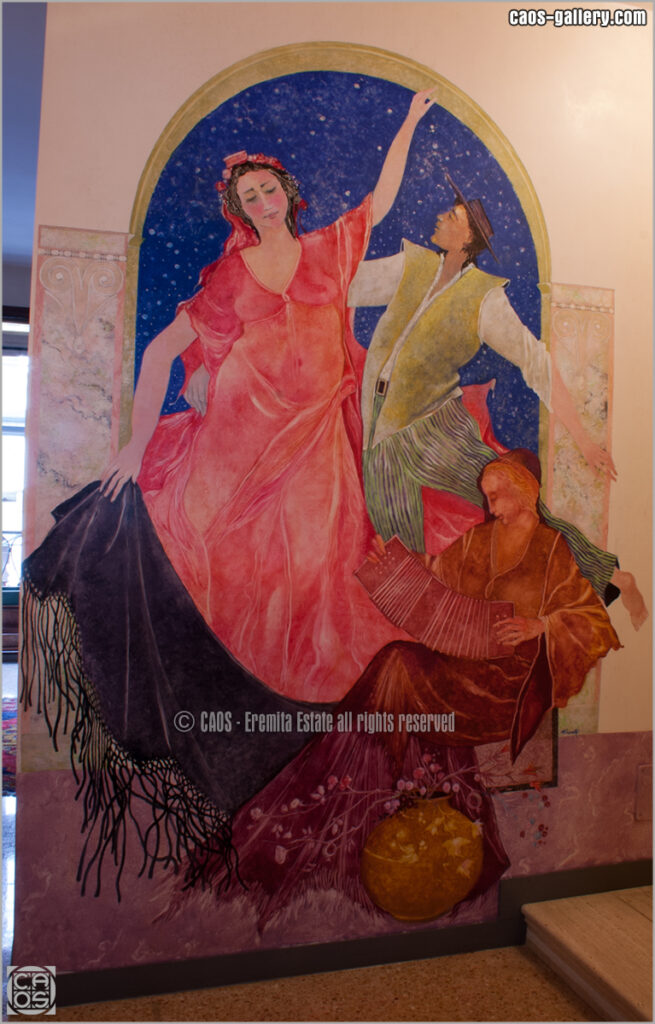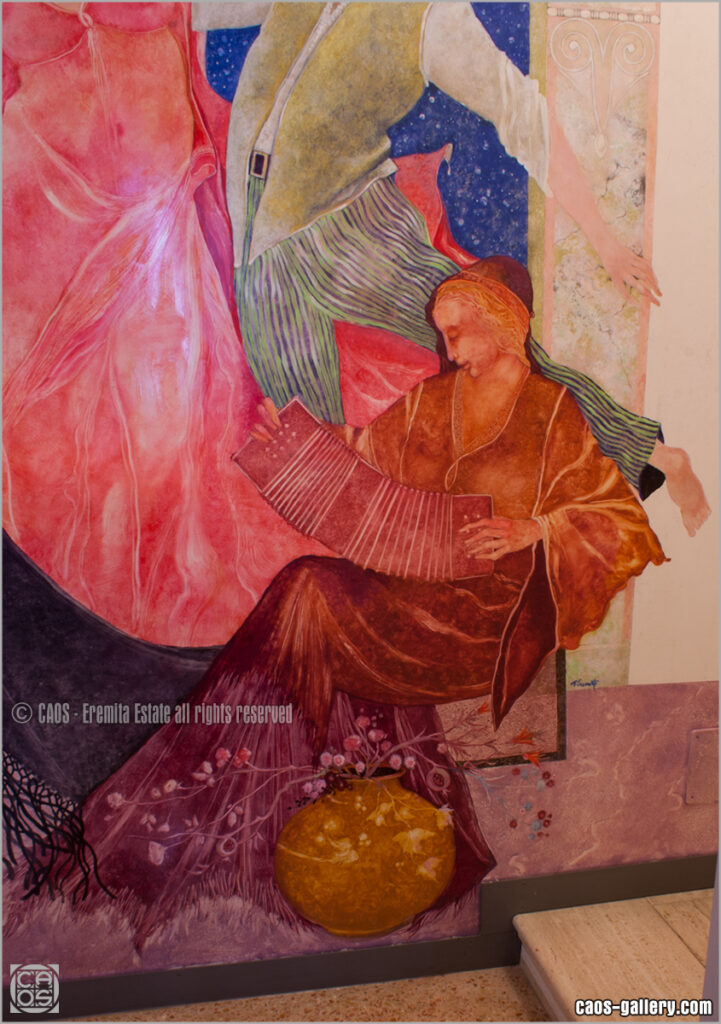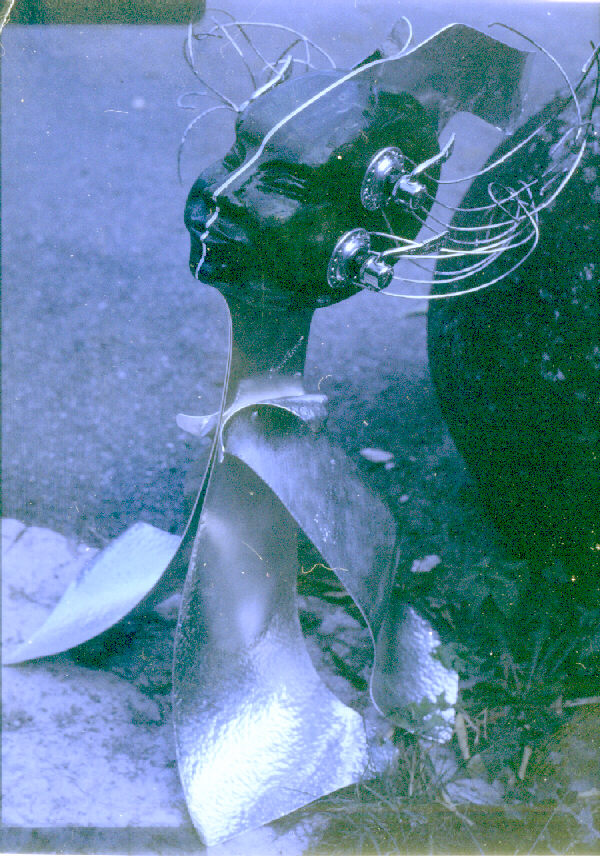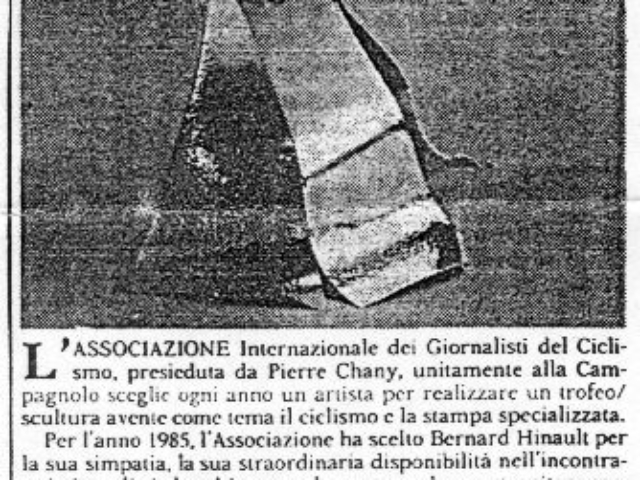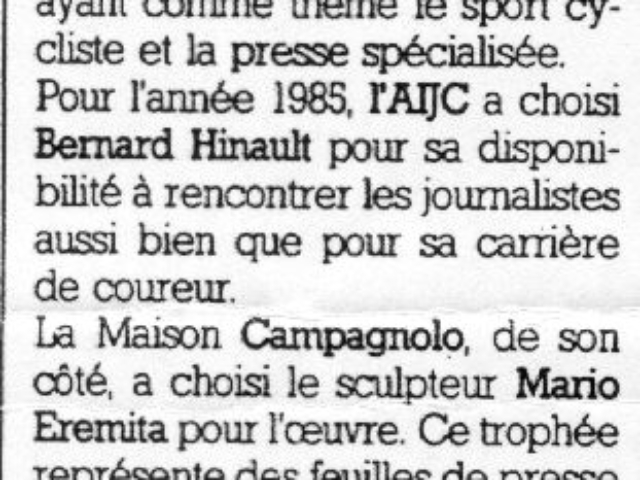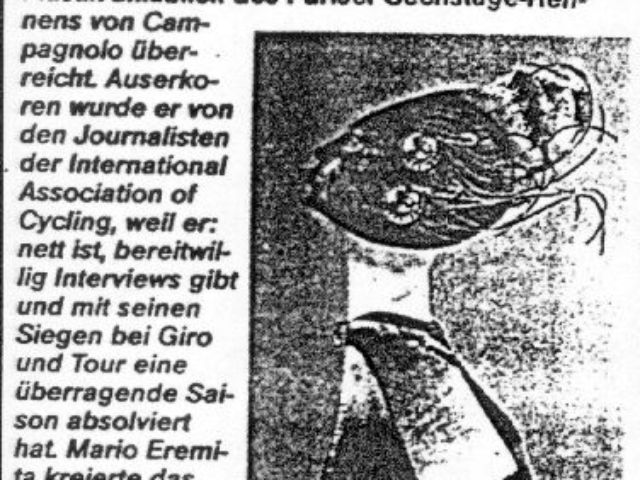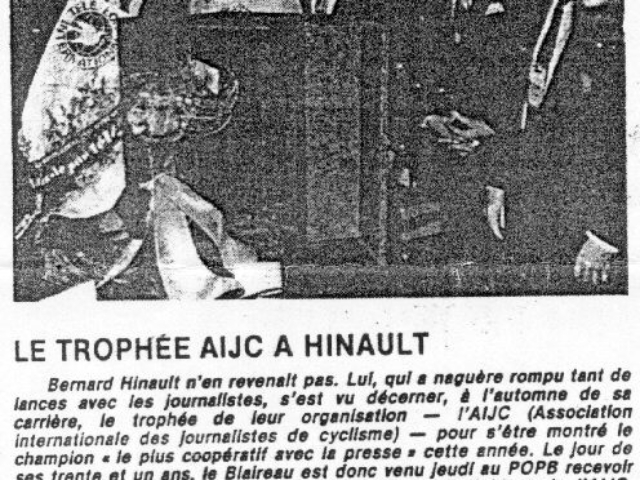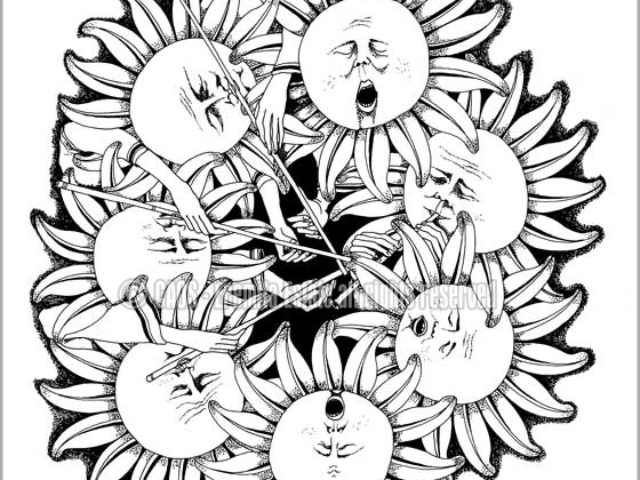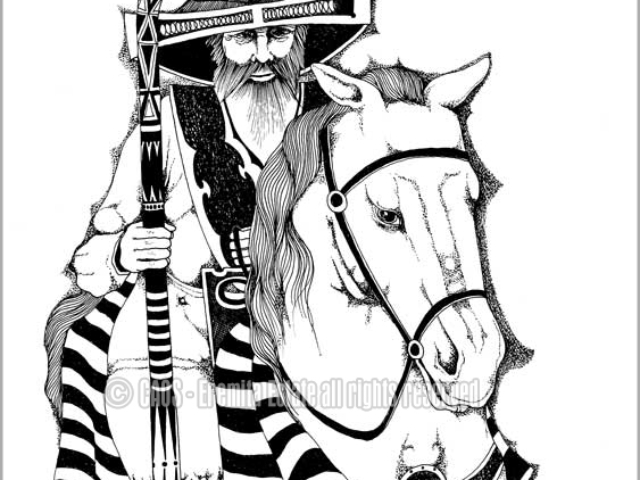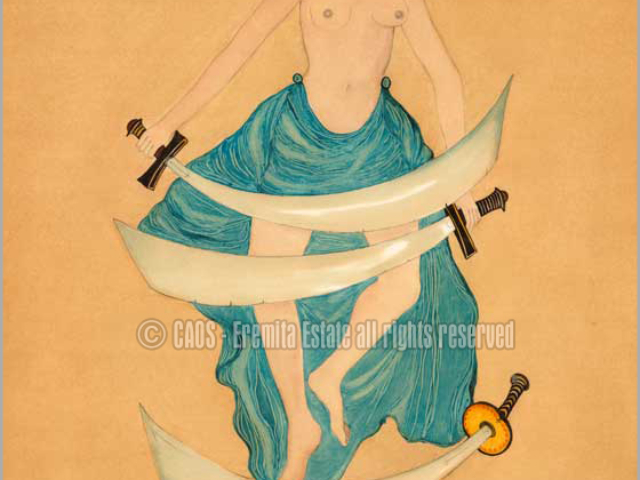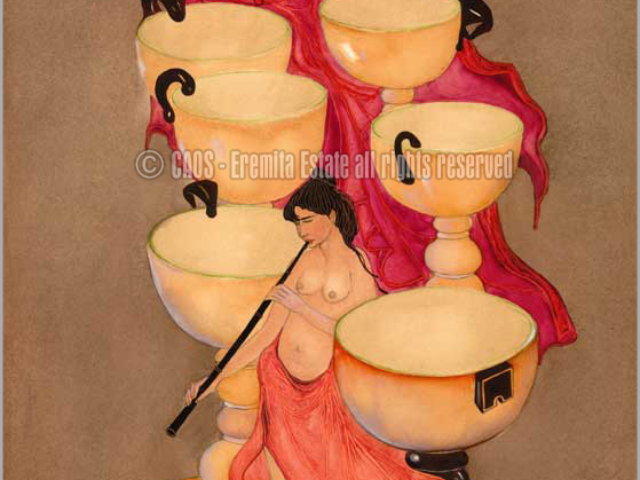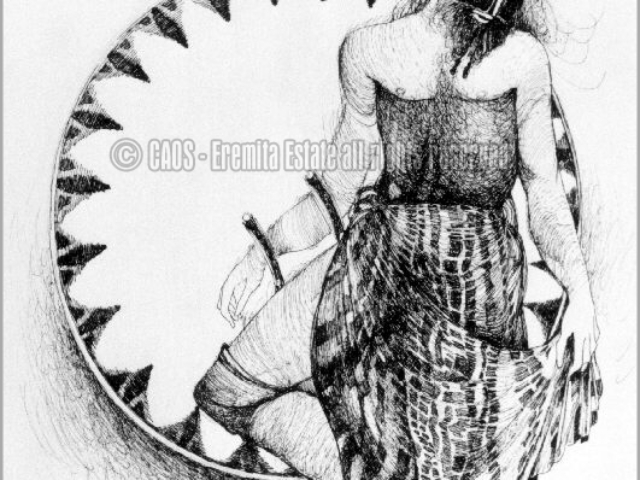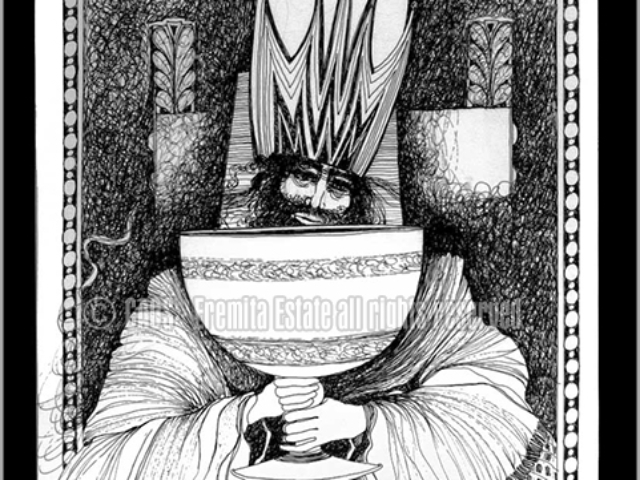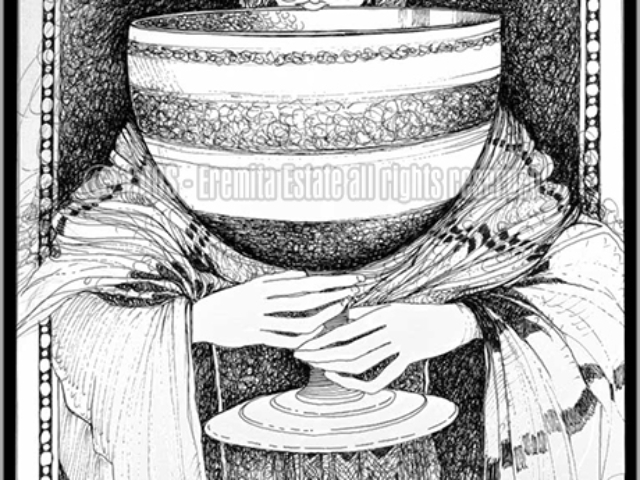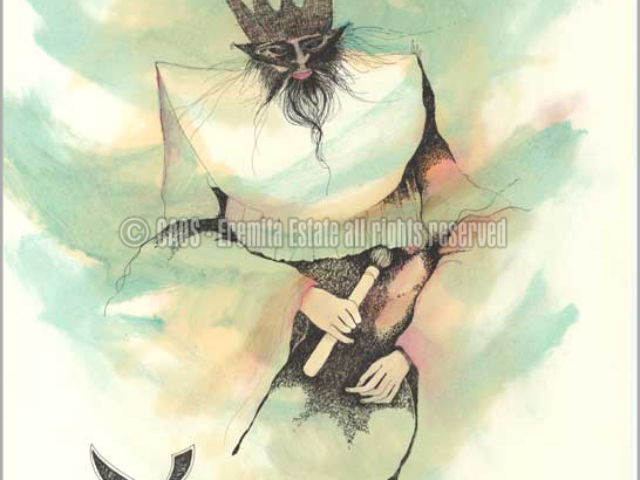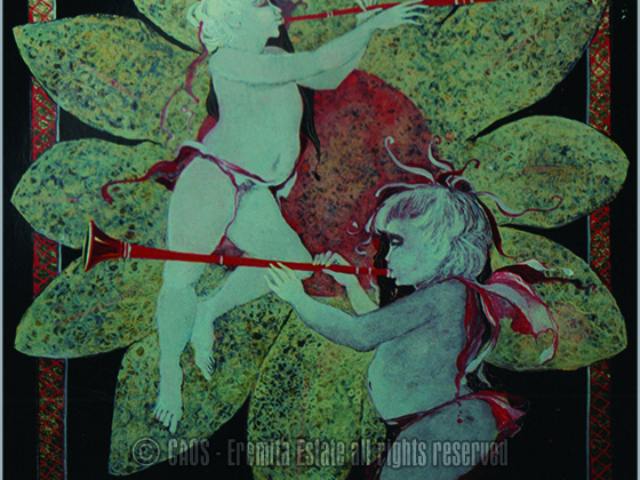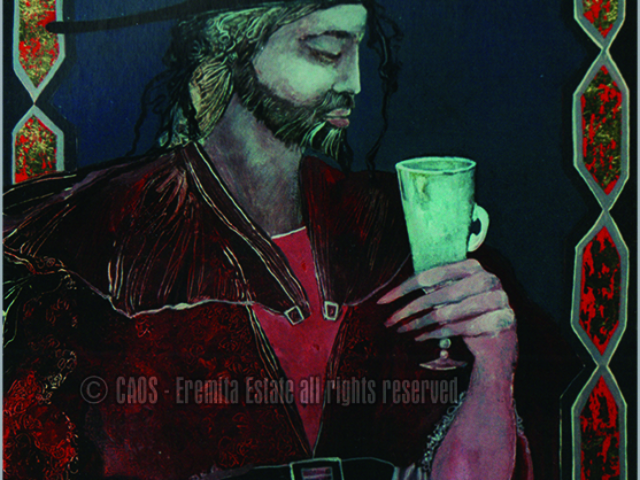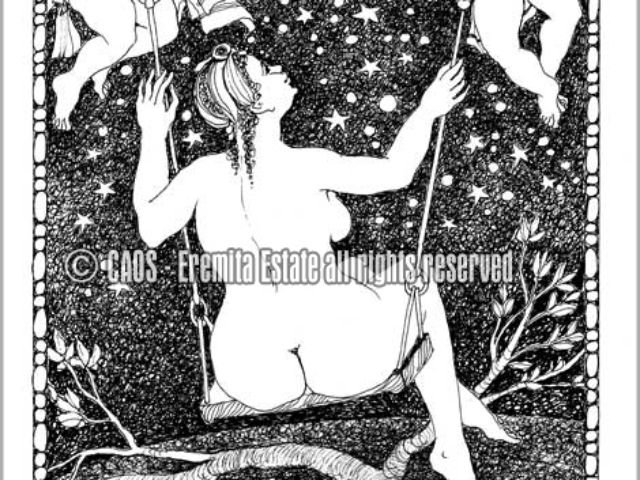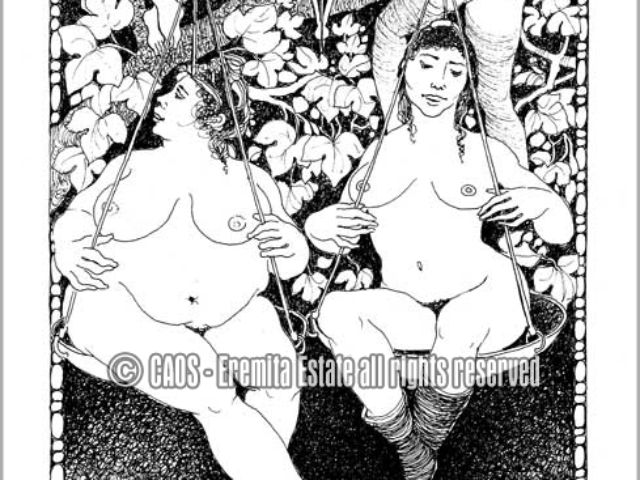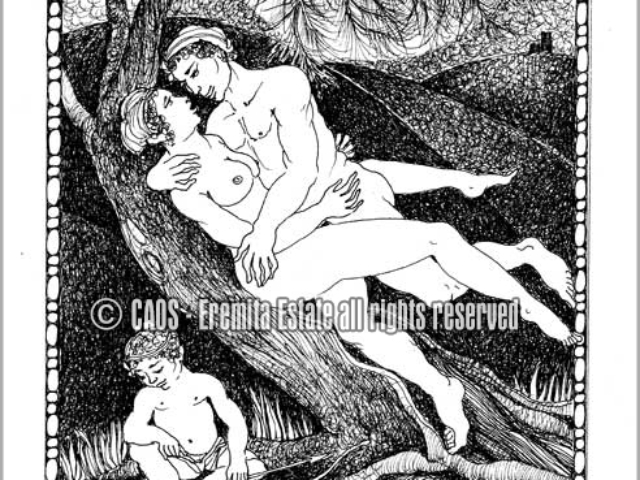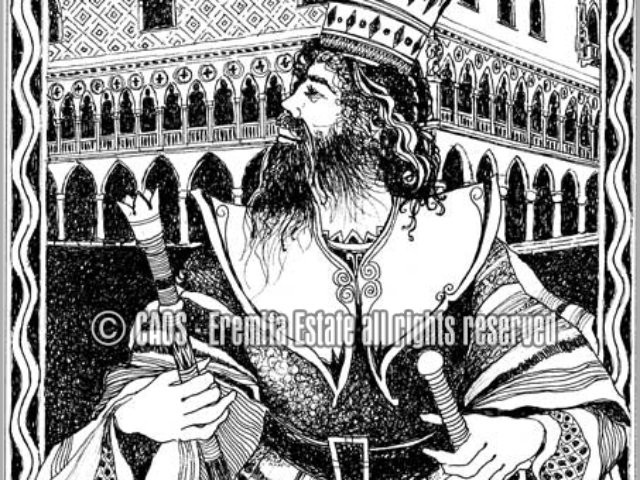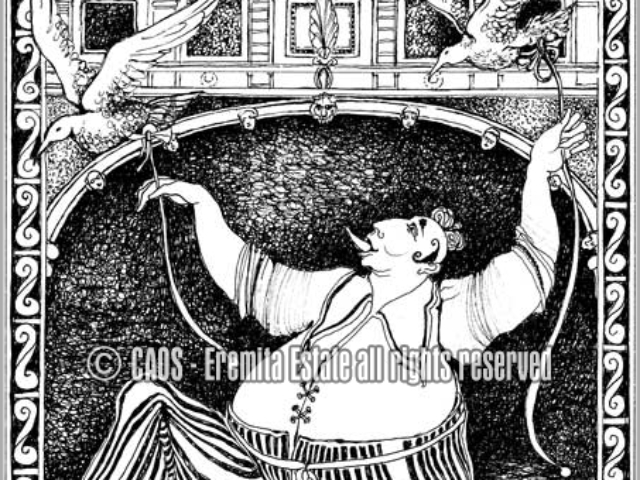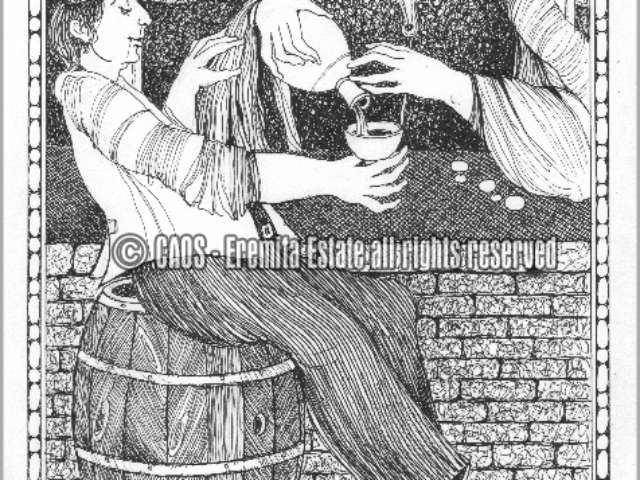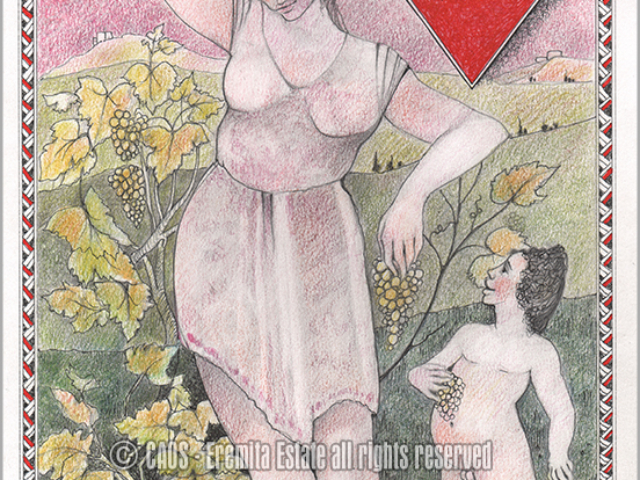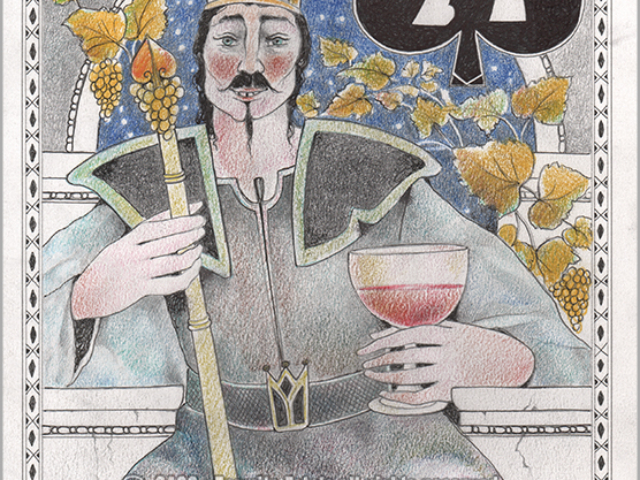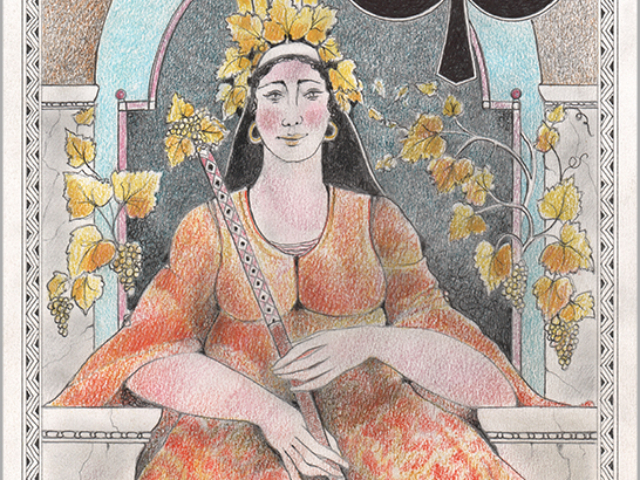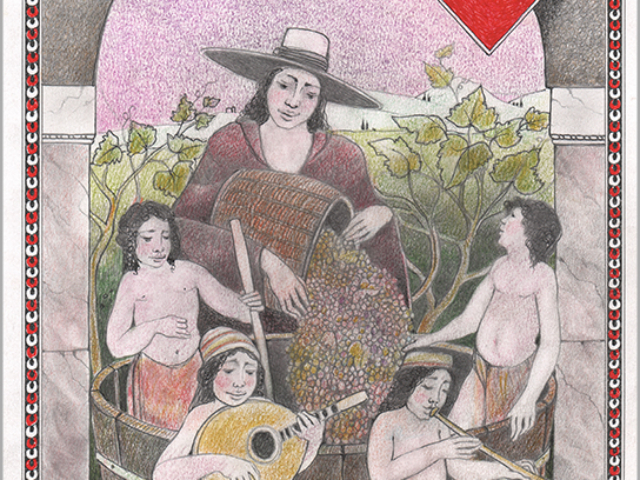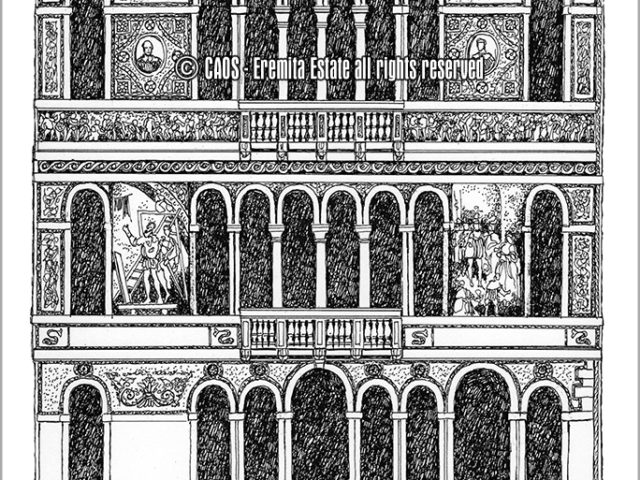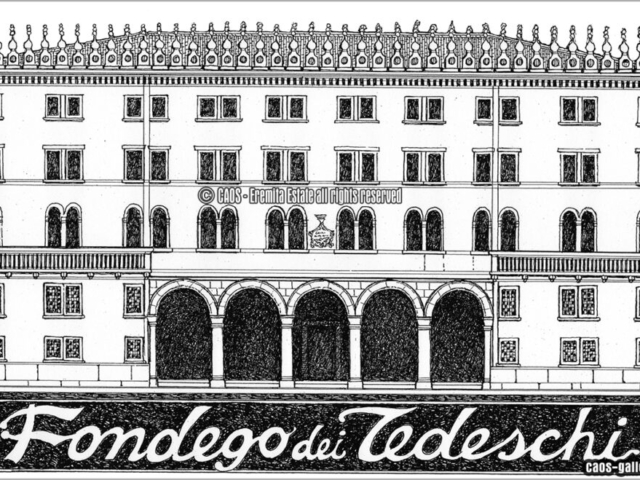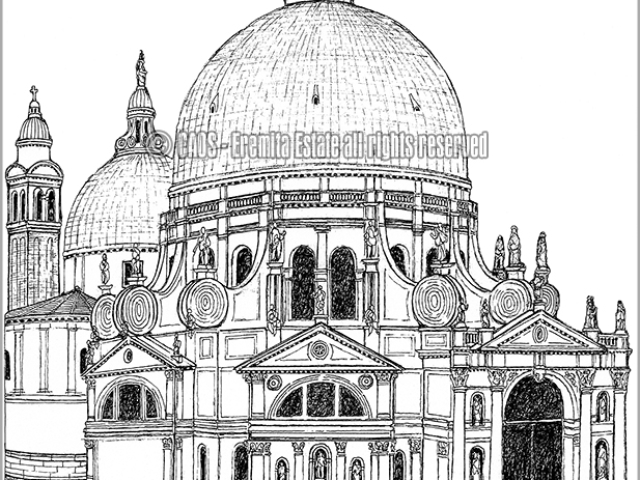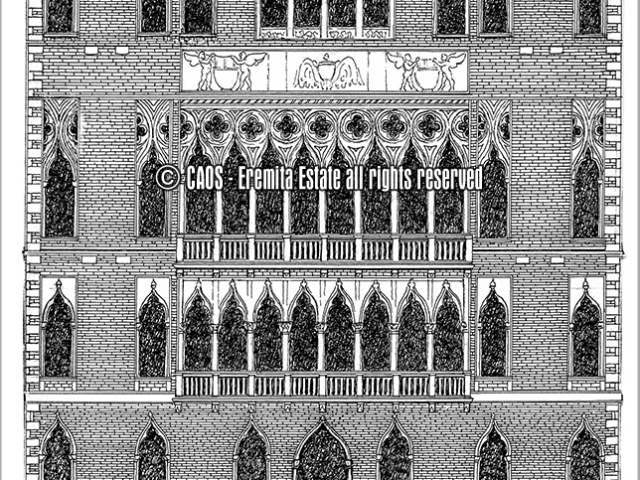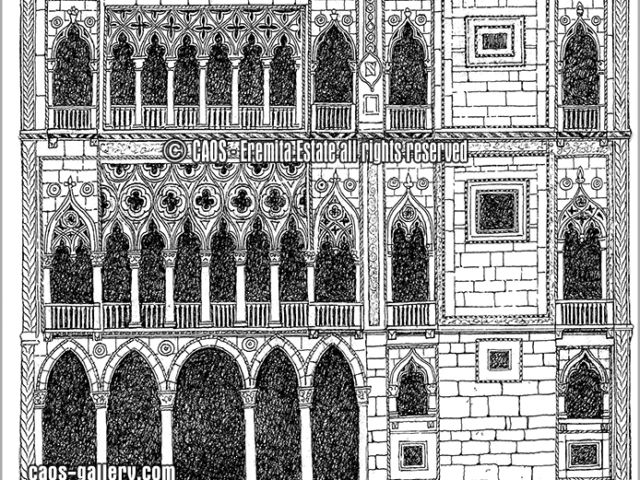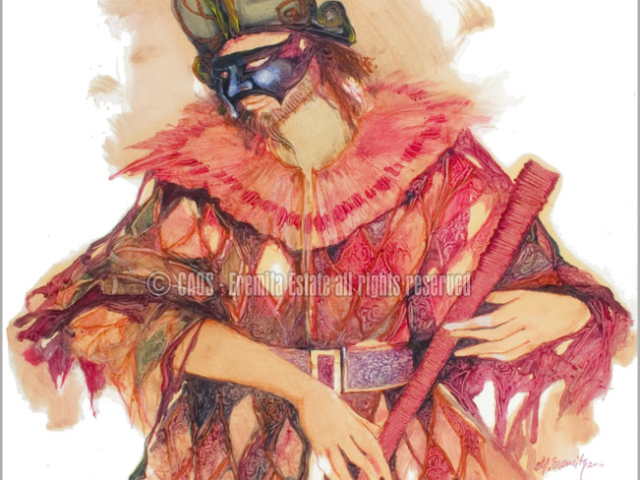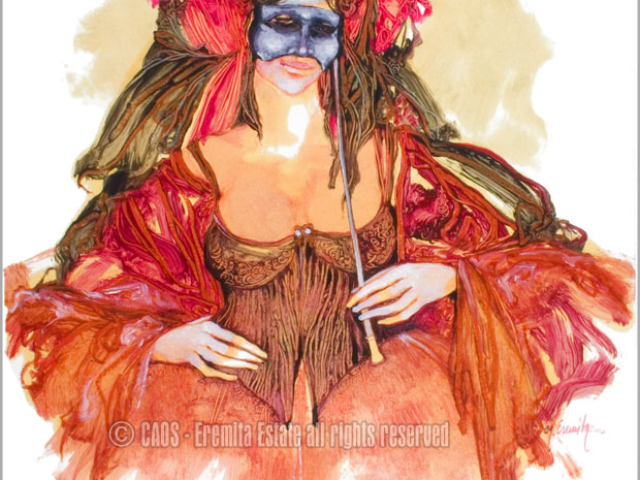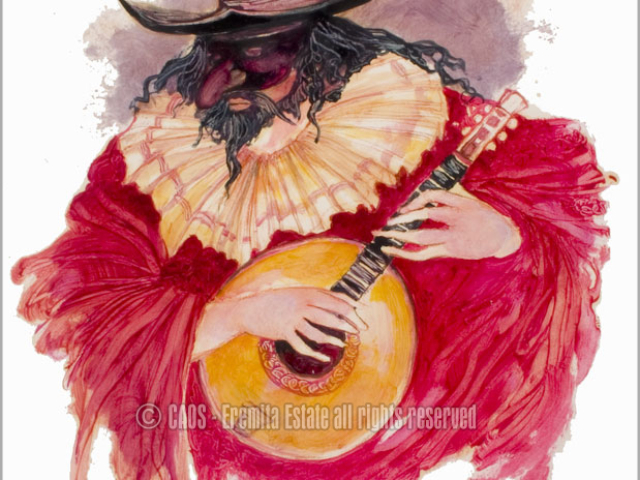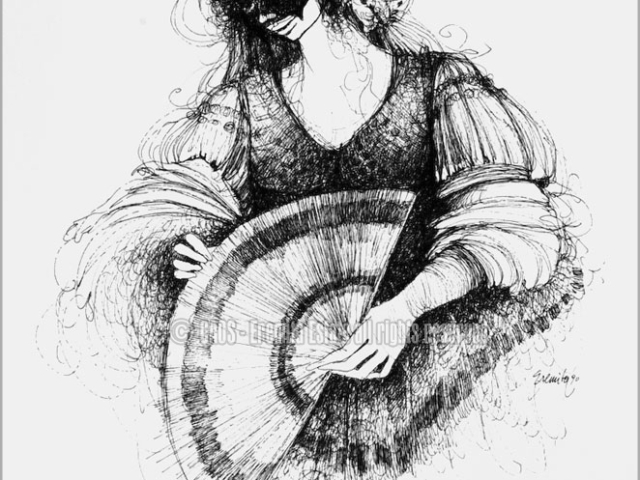the Venezia’s Coltrina, painting on canvas, prize of the Venezia’s Historic Regatta.
Artwork made by Mario Eremita for the Venezia’s Historical Regatta editions 2016/2020.
Genesis of the artwork
During the 2016 spring the delegate for traditions Giovanni Giusto addresses the curator of the III Millennium Art Gallery in Venezia Mr. Nicola Eremita expressing the desire to create a prize for the racers of the Hstorical Regatta. He thinks of a small banner, a handkerchief, to be given to the first place in the men’s regatta.
From that primitive idea, the curator imagines giving shape to a new venetian tradition that could be born that september 2016 and therefore continue over time. The inspiration comes from the historic Palio di Siena. Nicola Eremita therefore suggests the name of “La Coltrina di Venezia” for the artwork performed by the master Mario Eremita. It is something very different from what Giusto outlined, right something that can enrich venetian traditions by giving them a lively and contemporary edge.
The delegate Giusto informally shares the idea and the master Mario Eremita executes the artwork, therefore deciding to donate it to the Municipality of Venezia on the condition tyhat, after the exhibition on the Machina, it is permanently exhibited in an institutional loccation of public access.
In addition to the name “La Coltrina di Venezia”, Nicola Eremita also indicates a series of complementary initiatives necessary to grant continuity to the new tradition. He proposes to establish a committee for the selection of new editions of “La Coltrina di Venezia” in order to involve the artists. He therefore proposes to create over time a public space in which to permanently exhibit the artworks that would have multiplied over time and then to carry them in procession on the occasion of the Festa della Sensa, Redentore, Regata Storica, Festa di Santa Maria della Salute.
Unfortunately, all these ideas were left to fall on deaf ears, only one edition of the Coltrina was created ( that of the master Mario Eremita ) and not even the artist’s request was complied with. The Venezia’s Coltrina has remained in the office of delegate Giusto since 2016, inaccessible to the public and therefore obscured and without the recognition it deserves.
Characteristics
Piece of painted fabric dimensions 139.50 x 228.50 cm. It is made of viscose fabric with six fringes measuring 15.00 ( width ) x 10.50 ( height ) cm and six support slots in the upper part measuring 15.00 ( width ) x 6.50 ( height ) cm. The artwork is surrounded around the entire perimeter by a multicolored fabric cord with a diameter of 1 cm.
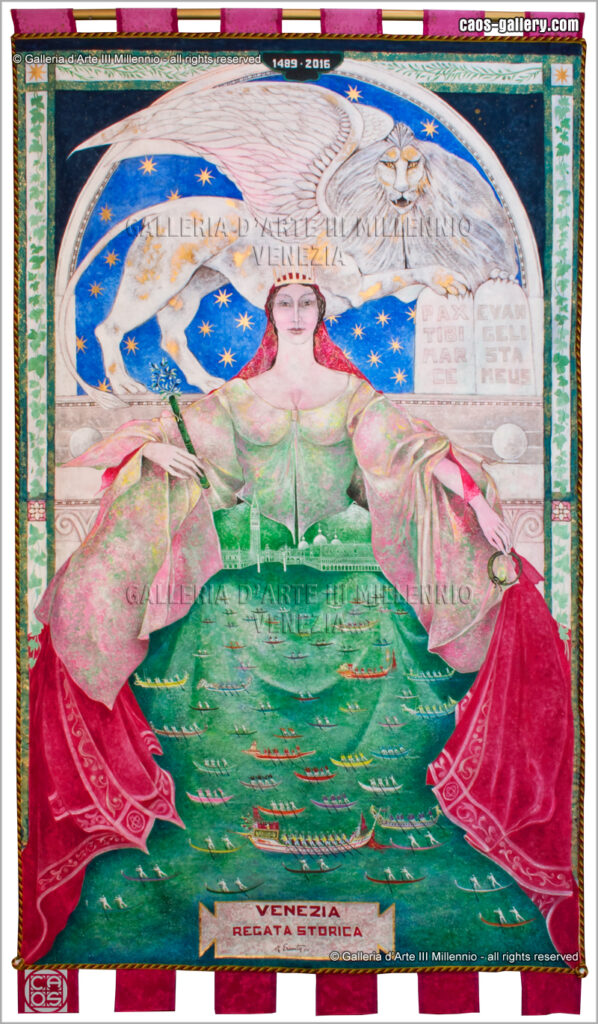
Description
The painting intends to explore the cultural traditions and symbolism of the Serenissima Republic of Venezia, the history of this territory and the cause of the existence of the lagoon city and its unparalleled contribution to the social, political and economic development of the human community. Comparable only to the civilizations of ancient Greece or China. Replaced, at the end of the eighteenth century, by the Anglo-Saxon civilization which today is the only legitimate heir of venetian splendor. In fact, the cultural connection that still keeps Venezia and New York symbolically linked today is not surprising.
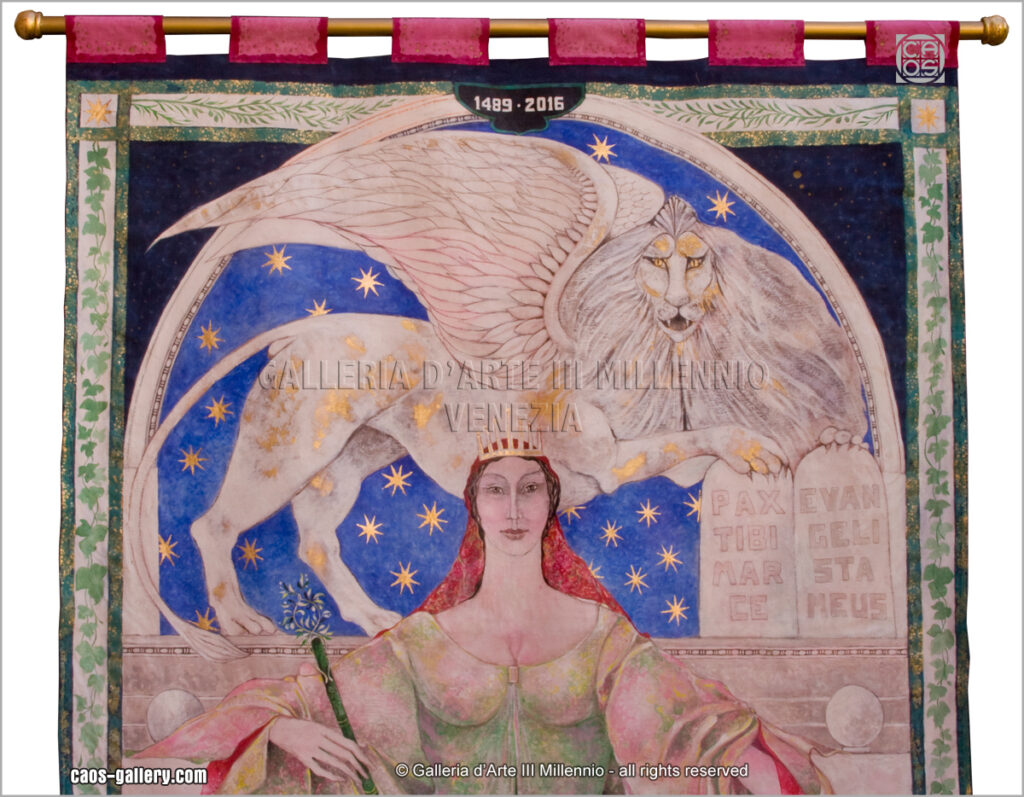
The Coltrina by master Mario Eremita is characterized by a marked frontal symmetry and the hieratic pose of Venezia in homage to the bizantine ancestors. From above we can appreciate the date 1489, the year in which Queen Cornaro of Cyprus abdicated and returned to Venezia receiving a triumphal welcome on board the Bucintoro, she paraded along the Grand Canal and obtained the rank of Lady of Asolo, also retaining her title of Regina. June 6, 1489 was a memorable day and the artist wanted to dedicate this Coltrina to it.
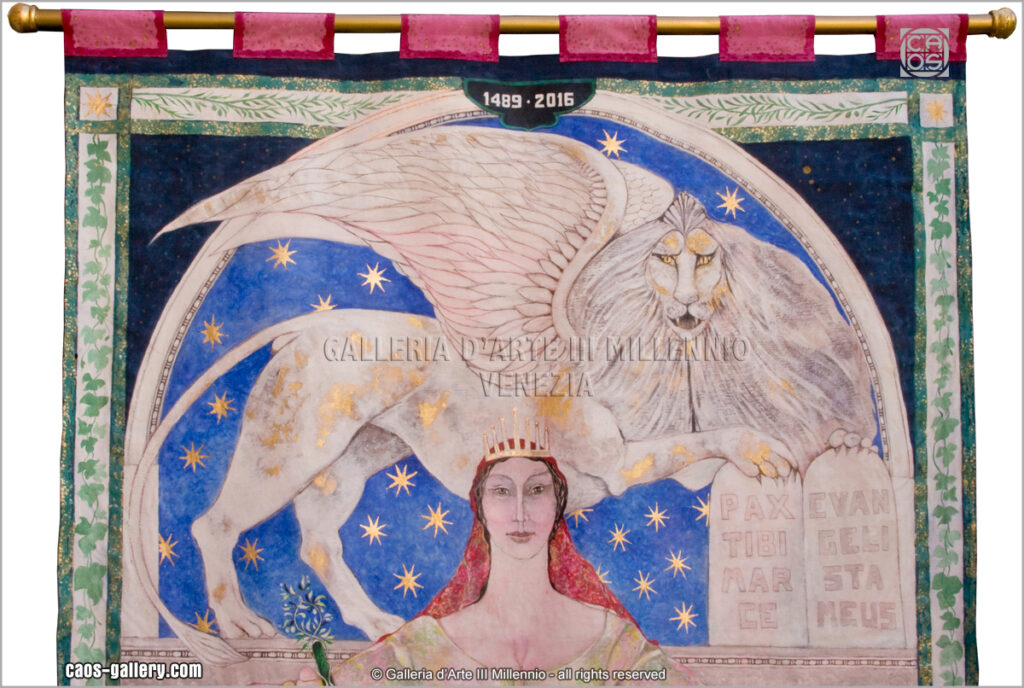
The whole represents the Throne on which Venezia sits; it is made of the white istrian stone with which much of Venezia is built. Here then is the Winged Lion who occupies the upper part of the Throne. It is represented here not in anthropomorphic features but in the real morphological constitution of an african lion, symbol of Marco the Evangelist. Note the dry belly, the slender legs suitable for running, the ample mane. The Lion is albino in homage to the istrian stone which was the privileged material for the manufacturing of this important symbol, and also to outline the particularity and rarity of its progeny which stands out. Both of the Lion’s front paws rest on the book which contains the famous latin phrase: “pax tibi Marce Evangelista meus.”
Peace be with you Marco, my Evangelist. This pose intends to represent the entirety of the venetian territory, both land and sea, and strengthen the primary intent of the Serenissima Republic which wanted diplomacy and exchange to prevail over the use of force.
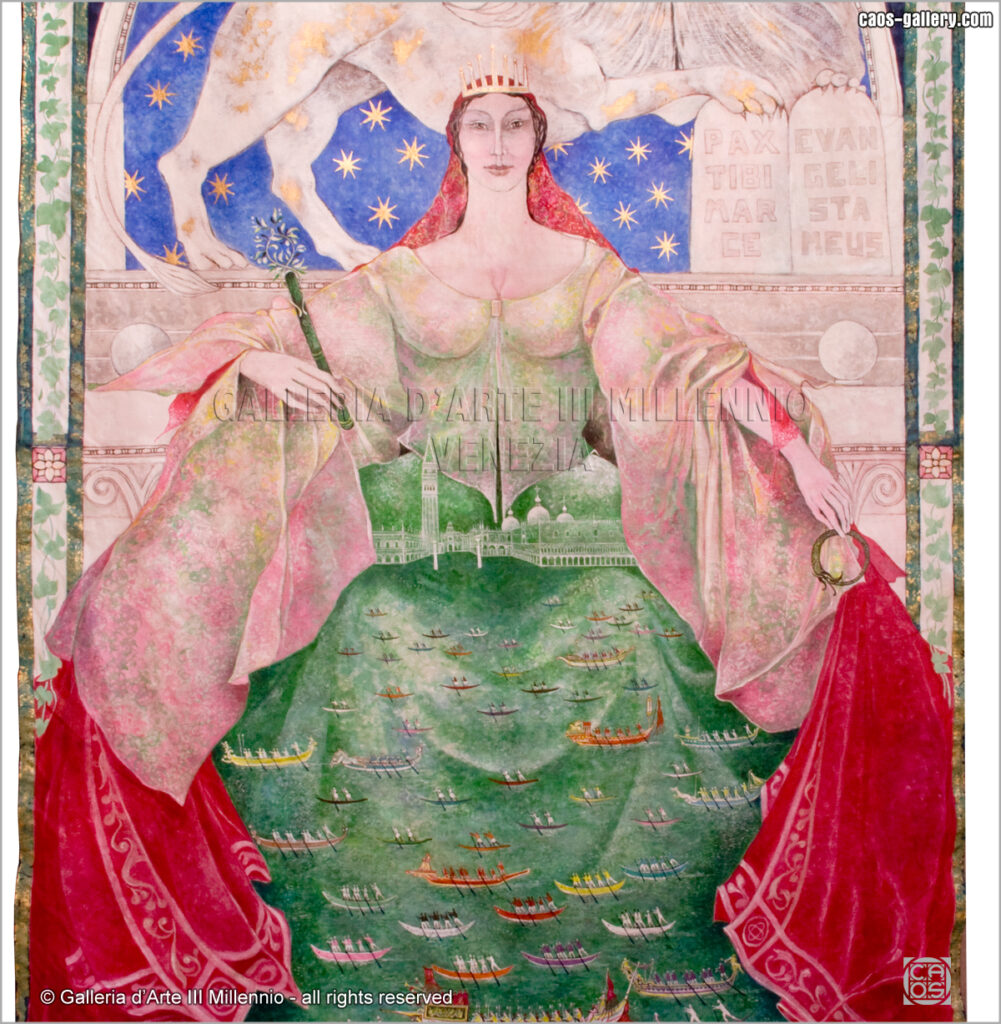
The Lion stands out against the starry blue background, a tribute to the representation located on the Clock Tower. Ahead and under the Lion here is Venezia sitting regally. She wears the crown that makes her Queen of the Adriatic; wears cloaks that recall the colors of the dawn and sunset characteristic of the Lagoon; hence the red color of the flag with its typical decorations. Venezia’s pose is hieratic and decisive, set to signify its own greatness, power and regal grace; she opens her arms, exposing her jewel to the world: access to the city from the Piazzetta of Columns of San Marco and San Todaro, the Palazzo Ducale, the Marciana Library and the Basilica. In her right hand she holds the scepter with olive branches, symbol of power in peace and, in her left, the ouroboros which symbolizes the circularity of time. The blue-green womb is the color that symbolizes the water of the lagoon and on the dress of Venezia, further down, float the boats of the Historical Regatta, the Bissone, the Serenissima, the Gondolini, the Mascarete, the Pupparini, the Caorline. Further down the nizioleto with the words “Venezia Regata Storica” and the signature of the artist Mario Eremita. The frame of ivy leaves to symbolize loyalty and love and the frame of olive branches for peace frame the composition.
Analysis of the artwork
The painting has a primary symbolic intent and in particular, it interprets the quiet and confident power of the Serenissima, recalling the glory of its original maximum splendor from the 13th century onwards.

In this sense the artist wanted to refer to byzantine and renaissance painting. Byzantine in the hieratic poses in the statuary composure in the symmetries and in the expositive sequence; renaissance in the treatment of colour, in the perspective breakthrough ( the Piazzetta of San Marco ) and in the use of different levels; here there are seven: the midnight blue background, the throne, the lion, Venezia, the robes, San Marco, the boats; almost overlapping, almost level but distinctly well separated and independent although tenaciously harmonized by the sublime use of colour, nuance and half-tones.
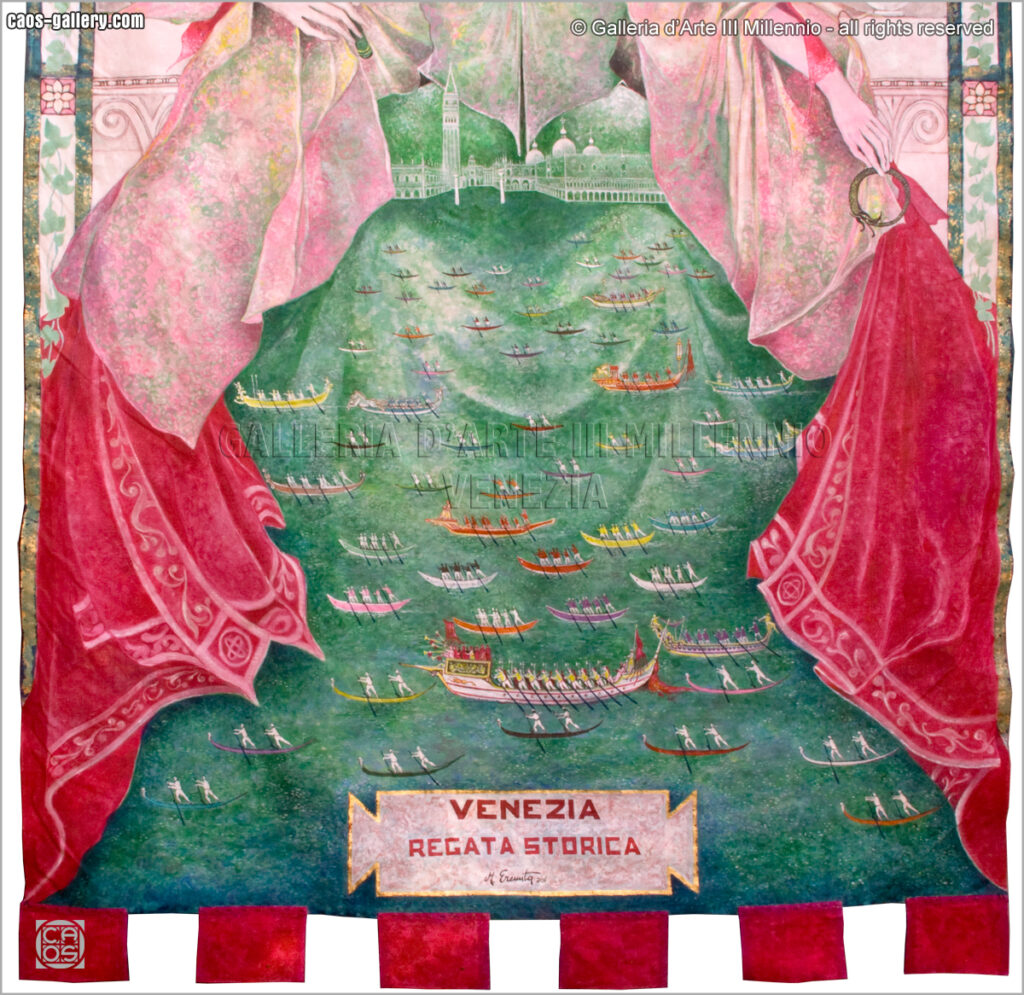
The sensation the spectator experiences is one of power; the desire to belong to this happy symbolism conquers and involves. Particularly, the dynamism of the lion’s wings together with the fluffy mane, give the impression that the feline is in flight. The Venezia’s hairstyle then becomes a flag, unfolding downwards like a hidden river that flows into the open lagoon; hidden by the venetian dawns and sunsets intepreted by the voluminous draped sleeves.
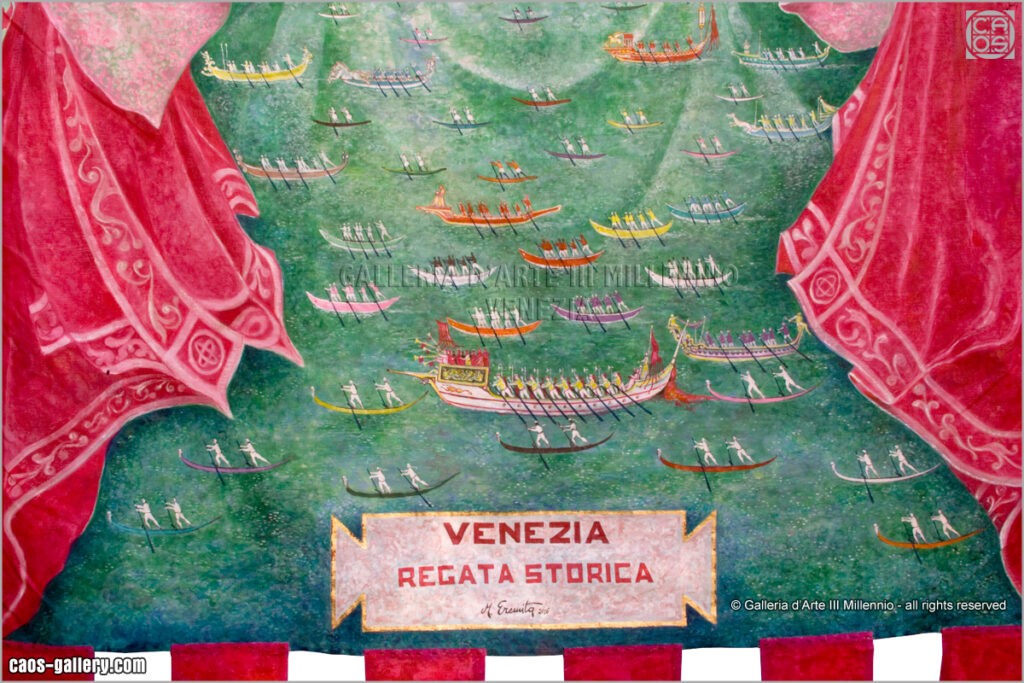
The face is linear, fine and delicate but firm and decisive, it observes us with pride and Olympic calm. From the blue-green womb the pale and dreamlike architecture emerges while below, the colored boats move towards the Grand Canal to carry out the Regatta, floating on the dress that runs into water.
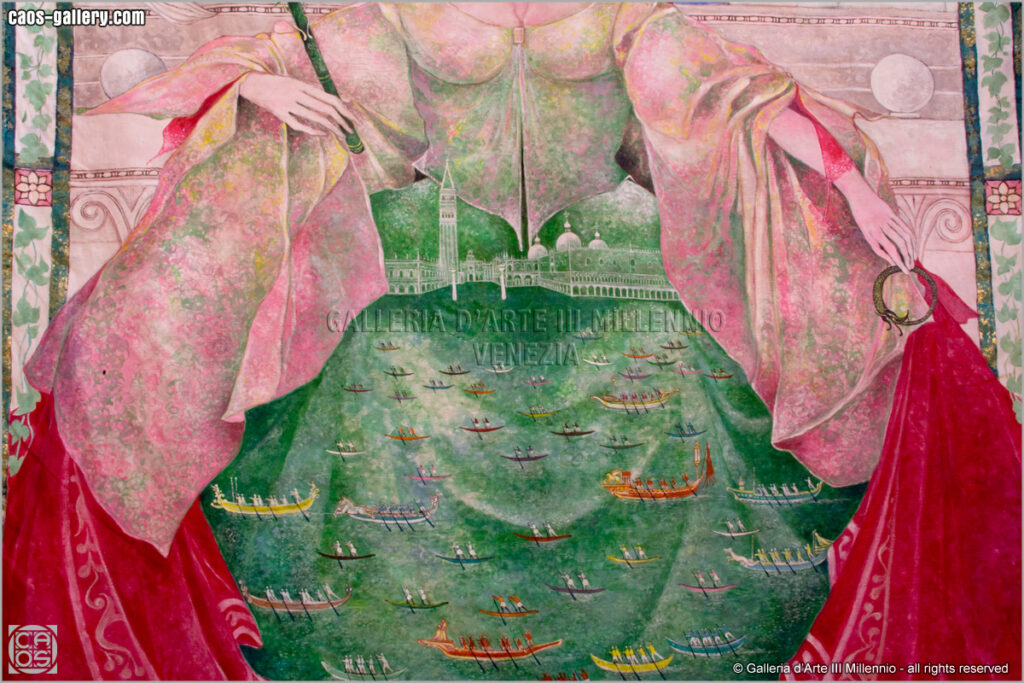
The midnight blue background just frames the top corners, highlighting the contrast between dark and light, the latter embodied by the entire venetian spirit. The artwork is unmistakably by the artist Mario Eremita whose stylistic features are original and typical: the shapes of the limbs, the ombre, the light painting, the volumes and the very delicate symbolic references present not only in the shapes but also in the colour. The way the artwork is read is from top to bottom.


